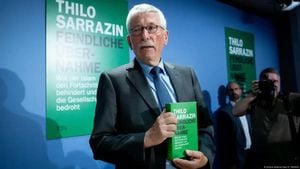Six years ago, on February 14, 2019, India witnessed one of the most tragic events in recent history when a deadly terror attack took place in Pulwama, Jammu and Kashmir. A suicide bomber, linked to the Pakistan-based militant group Jaish-e-Mohammed (JeM), targeted a Central Reserve Police Force (CRPF) convoy, resulting in the loss of 40 brave soldiers. This assault sent shockwaves across the nation and marked the day as one of mourning and remembrance for the fallen heroes.
The attack occurred around 3:15 PM local time, when the convoy was traveling on the Jammu-Srinagar National Highway. Adil Ahmad Dar, the 20-year-old attacker who had joined JeM just a year prior, drove a car laden with explosives directly at the bus carrying CRPF personnel. The resulting explosion was catastrophic, claiming numerous lives and injuring many others, causing immense outrage and sorrow among the public.
Following the assault, then-Prime Minister Narendra Modi condemned the attack and assured the nation, stating, "The attack on our soldiers was heartbreaking, and we will never forget the lives lost." The sentiments echoed throughout the country, as citizens expressed solidarity with the grieving families and demanded justice for the martyrs.
Notable responses to the attack included heightened military action against terrorist camps. Just days later, on February 26, Indian Air Force fighter jets launched airstrikes against JeM facilities located deep within Pakistan, marking a pivotal moment in India-Pakistan relations. This decisive military response was aimed at countering terrorism emanated from across the border.
Fast forward to 2025, on the eve of the sixth anniversary of the Pulwama attack, Lieutenant Governor of Jammu and Kashmir, Manoj Sinha, convened a high-level security meeting to discuss the current security scenario. Emphasizing the need for stringent measures against terrorism, Sinha asserted, "You (the security agencies) must follow a zero tolerance policy to tackle terrorism. I have give J&K Police and Security Forces a free hand to neutralise the terror ecosystem operating in the shadows." This strong message underlines the government’s determination to combat terrorism effectively.
The security meeting also addressed the importance of intelligence sharing, coordination among agencies, and the need to defeat the terror ecosystem, currently operating with alarming proximity to areas of conflict. With tensions between India and Pakistan still simmering, the memory of the Pulwama attack remains relevant as the authorities seek to safeguard the nation against similar tragedies.
International support for India following the attack was significant, with condemnation from nations including the United States, France, Russia, and the European Union, all of whom expressed solidarity against terrorism. Concurrently, India took aggressive diplomatic steps against Pakistan, including withdrawing Pakistan's Most Favored Nation status and imposing high tariffs on Pakistani goods.
On the Pakistani side, the narrative framed around the Balakot airstrike has continued to influence their military strategy. The Director General of Pakistan’s Inter-Services Public Relations remarked, "February 27 commemorates the resolve of Pakistan Armed Forces against any aggression. The way we responded on this day is proof any misadventure by enemies of Pakistan will always be defeated." This highlight of military prowess points to the dual narratives both nations must navigate, each emphasizing their perspective of the events.
The sixth anniversary of the Pulwama attack serves not just as a day of remembrance but also as a stark reminder of the challenges both India and Pakistan face concerning terrorism and national security. The sentiments of anger, grief, and resolve are echoed across borders, compelling both nations to reflect on their strategies and cooperative measures to prevent any future unforeseen confrontations.
While the world watches closely, the lessons learned from the past continue to guide both nations as they aim to shape their futures free from the shadows of terrorism, ensuring the sacrifices of those lost are never forgotten.



